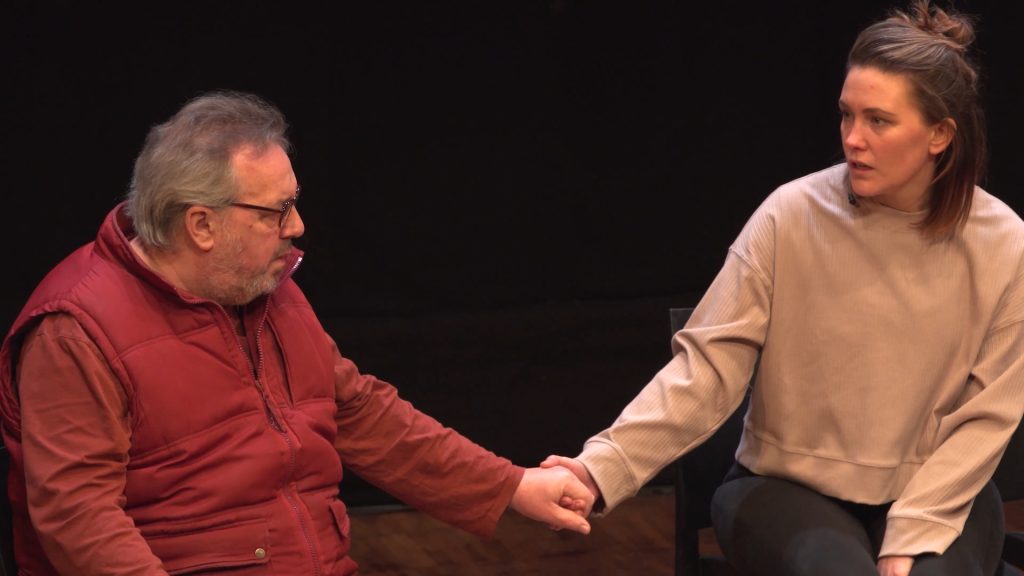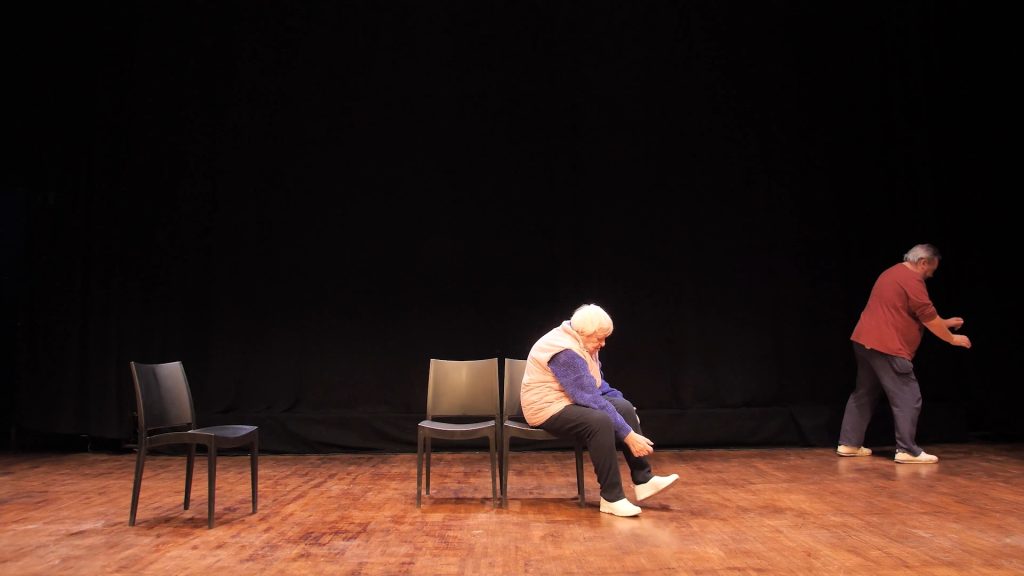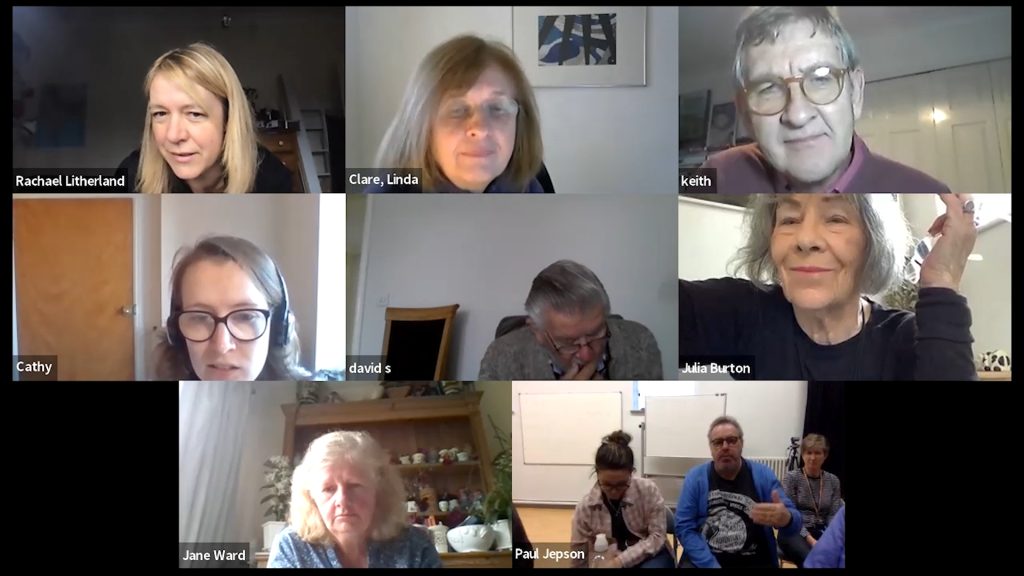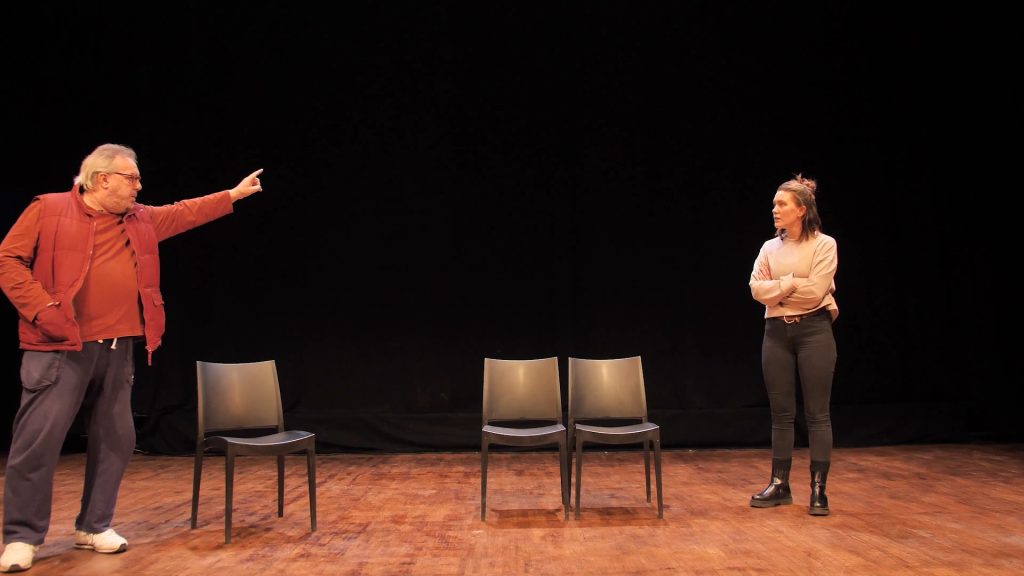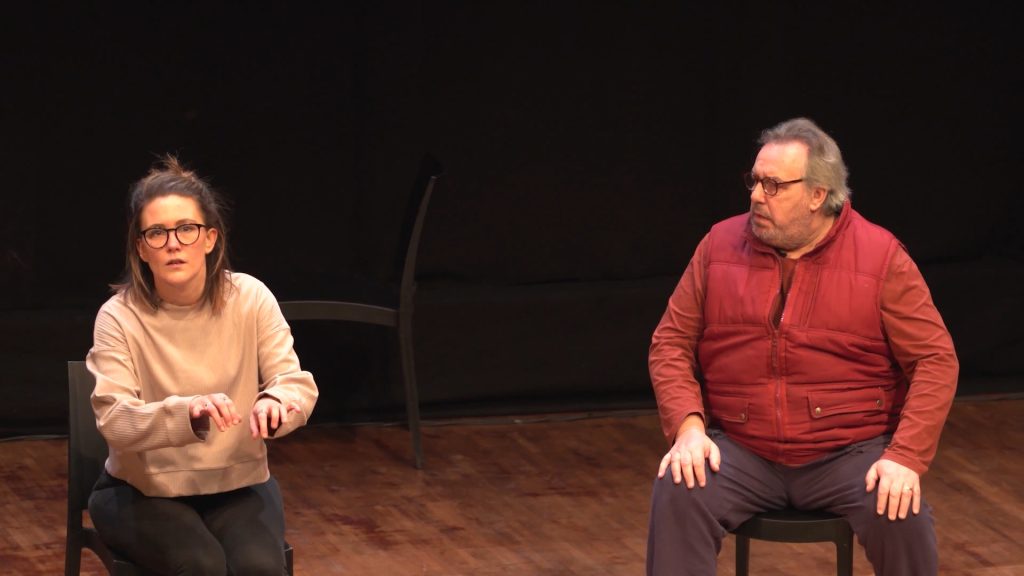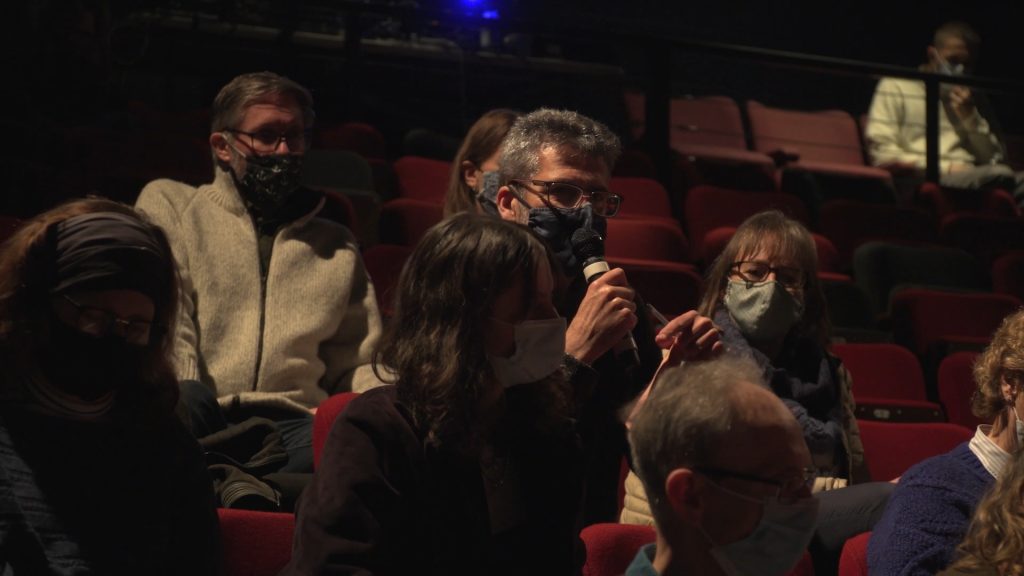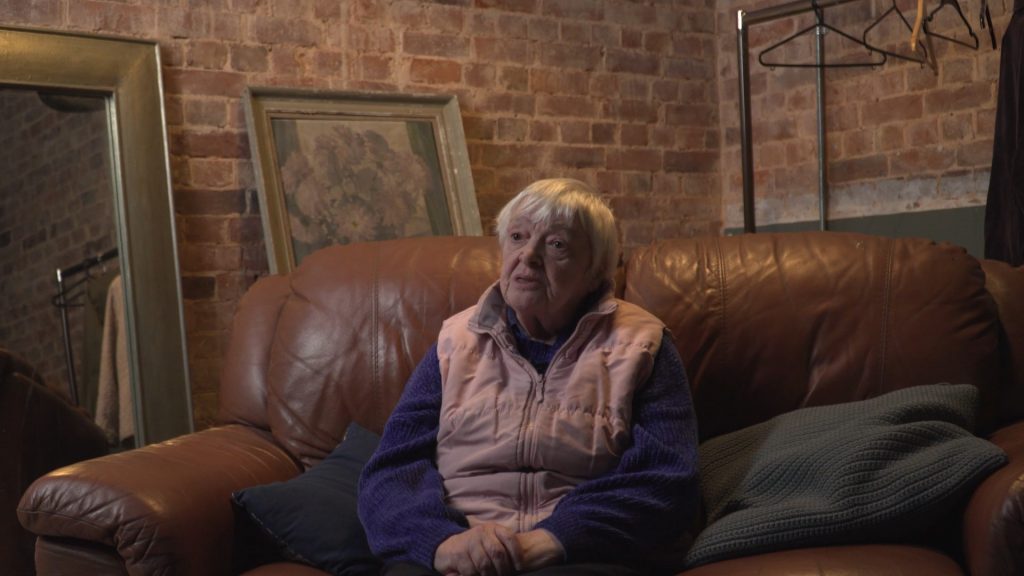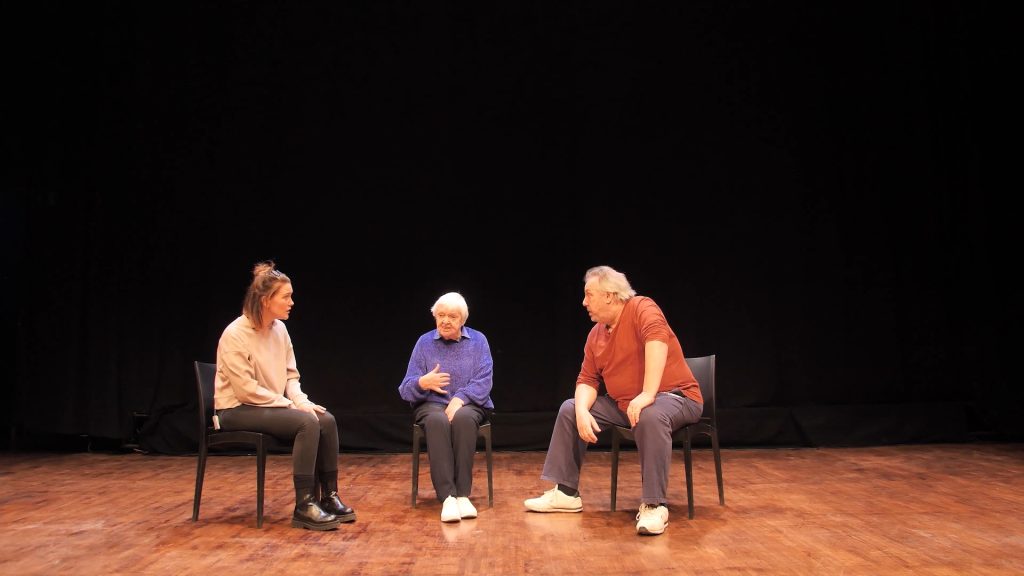Summary
Here, we hear from three co-authors about a fascinating project from the IDEAL dementia research programme: a conversation-starting play called ‘The World Turned Upside Down’. If you're interested, you can access this play for free on YouTube, alongside a screening pack to help you start discussions around the issues that the film raises.
As part of the IDEAL dementia research programme, an Alzheimer’s Society Centre of Excellence based at the University of Exeter, we wanted to explore challenges in communication between people with dementia and those around them. When do points of conflict arise and why? How can each person’s voice be heard without negating that of the other?
‘The World Turned Upside Down’ began as a conversation between Professor Linda Clare, Chief Investigator of IDEAL, and Paul Jepson, Director of the Northcott Theatre. IDEAL has been studying which things make a difference to living a good life with dementia for both people with dementia and carers since 2014 and, unsurprisingly, one hinge on which experiences turn is communication. The idea for the play was to stage a series of scenarios which contained ‘tipping points’, places where reactions to the communication situations could see things go better or worse, and then to stop the scene to ask the audience what they understood to have happened and how changing it could make things play out differently.
The play was performed three times in Exeter in January 2022, twice to general audiences and once to 16-18-year-old drama students from Exeter College. All audience members were given a feedback card. Before watching, they were asked to complete the statement ‘Dementia and communication…’ and afterwards to complete the statement ‘This play made me realise…’. While responses to the first prompt tend to be fairly negative – “Repetitive, upsetting, difficult, confusing, sad, tiring” – or absolute – “no words/language” – responses to the second prompt demonstrated that something quite significant had taken place:
[This play made me realise…]
The power “we” can have on the (outcome) of what follows. Our feelings, emotions, choice of words, body language impacts the person’s responses.
Every person needs to be listened to. And if one way of communicating doesn’t work then you need to find a way around this/a different way.
Everyone is afraid of it; however, people do get angry at those who have dementia. It’s not ok, but it’s not unfamiliar. It’s important to keep the truthfulness of care, not for it to be used as a meaningless word.
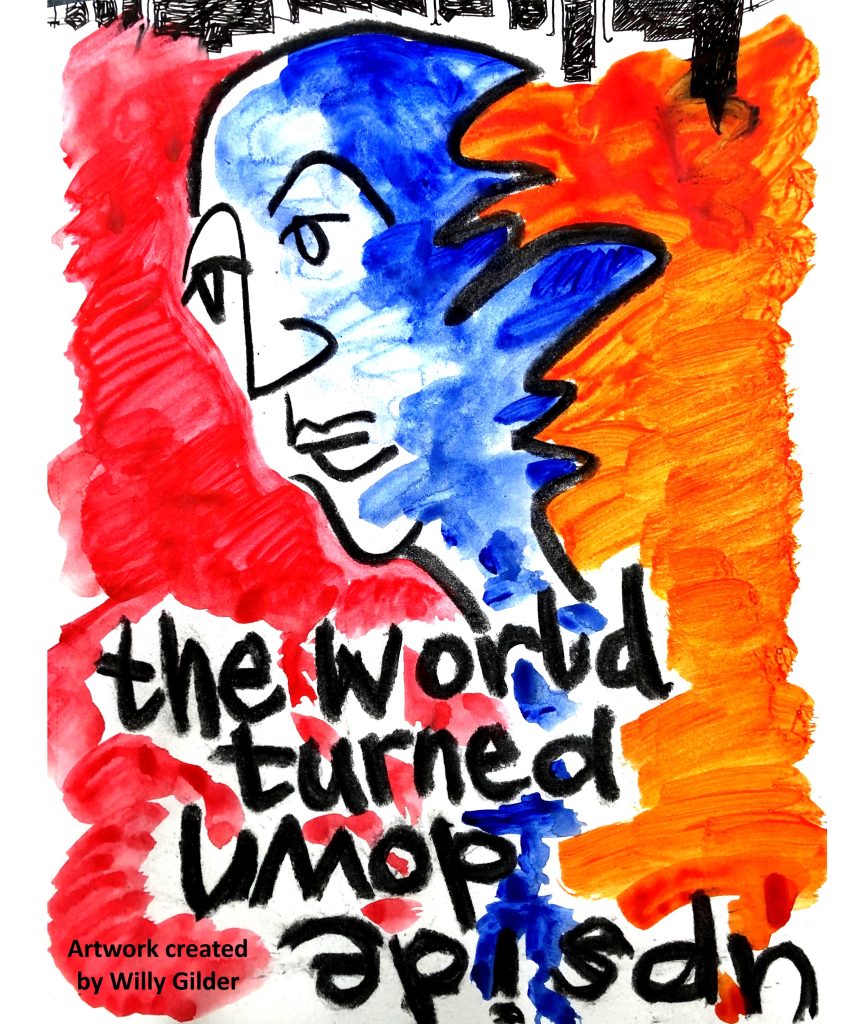
For the IDEAL team, even though we knew the scenarios, and had seen them in rehearsal, we were taken aback by how powerful it was to see these situations staged. Somehow, when these typical situations happen in front of you, they take on a different tone. Many of us will see ourselves in those scenes and think “I could so easily behave like that” or “I have done that”, but the true weight of those actions can only be appreciated when watched from outside of the situation itself. That’s the power of theatre.
We have since released a free documentary film of ‘The World Turned Upside Down’ which covers not only the performances, but also rehearsal footage, audience comments and reflections on the whole process. Feedback so far has emphasised the importance of both seeing and sharing the film: “We need to learn about dementia before it affects us personally because sadly there are no second runs after discussion of each little real-life scenario, and the hurt/fear/damage has already been delivered. I’d love to see this brilliant film shown widely in every town across the UK.”
IDEAL’s involvement group of people with dementia and carers, the ALWAYs group (Action on Living Well: Asking You), were an integral part of the process from the original ideas for scenarios to staging them through to editing the final film. Below we share the perspectives of two ALWAYs group members.
Julia – former carer
My [professional] background is in education: Drama, English and then Media Studies, all of which are about communication. I did a lot of improvised drama, which is why I was very interested in being involved in the steering committee of this project.
I wanted the play to communicate tipping points and I wanted it to be genuine: to start from what people with dementia thought, felt, and how they tried to express themselves. They ALWAYs group were involved throughout the whole process: we had quite a few meetings with Paul and then with the cast themselves, which kept the reality there into what was actually a creative situation.
For me, the film emphasises the importance of emotion. You’re not just dealing with whether someone should drive or not, or going into a care home, the emotion is there. It’s so important to recognise that that emotion is there and to manage it in an appropriate way. One of the things that people with dementia don’t lose is their emotional sensitivity and sensibility. They can read and feel how you feel, so it’s particularly important to recognise the role of emotion and manage it by giving more space, more time, or taking time out.
Keith – living with dementia
Whilst dementia is never represented in a balanced manner in any creative performance, The World Turned Upside Down changes this by offering, through an amazing representation, the broad picture of living with, and being affected by dementia.
The reason it has succeeded in doing this is that the actors, the director and those behind the scenes did exactly the right thing: they listened to and the implemented what they heard from people with a diagnosis and family carers. Our experiences fundamentally shaped the performances and then the film. I wrote a poem to introduce the film when we screened it with the 3 Nations Dementia Working Group, which I share here:
A World Turned Upside Down
Who would ever want to live in a world turned upside down?
Not me that is for sure
Yet that is the reality of the situation at times
Does it need to be thus?
Could I not manage with help and support to make the world spin on its normal axis?
Who would want to live in a world turned upside down?
To experience the fog rolling in with no headlights to guide you
To witness the look of disbelief when memory flaws are revealed
To feel the emotions bringing tears to one’s eyes where before smiles were the norm
To hear words and yet not fully comprehend their meaning
But this world need not be like this
The fog can lift and the sun can emerge
Compassion, tolerance and understanding can prevail
Life can go on meaningfully with love at the centre
The world can turn and right itself with hope at the axis
The world need not be upside down.
About ‘The World Turned Upside Down’
‘The World Turned Upside Down’ is freely available on YouTube and we would love for you to watch and share it. You are welcome to organise a screening of the film and we have prepared a screening pack to help you start discussions around the issues the film raises.
Please feel free to email IDEAL@exeter.ac.uk with your feedback or questions.
To find many more resources, please visit the Living with Dementia Toolkit.
About the authors
Dr Catherine Charlwood is Research Translation and Impact Manager for the IDEAL programme having previously done a literature doctorate on memory in poetry. Julia Burton is a former carer living in the South West who, beyond IDEAL, does a significant amount of work with Alzheimer’s Society Research Volunteer Network. Keith Oliver is a former headteacher who has lived with Alzheimer’s disease for 12 years. Keith is a published author and an acclaimed national and international dementia advocate. Both Julia and Keith have been members of IDEAL’s ALWAYs involvement group since its inception in 2014.
